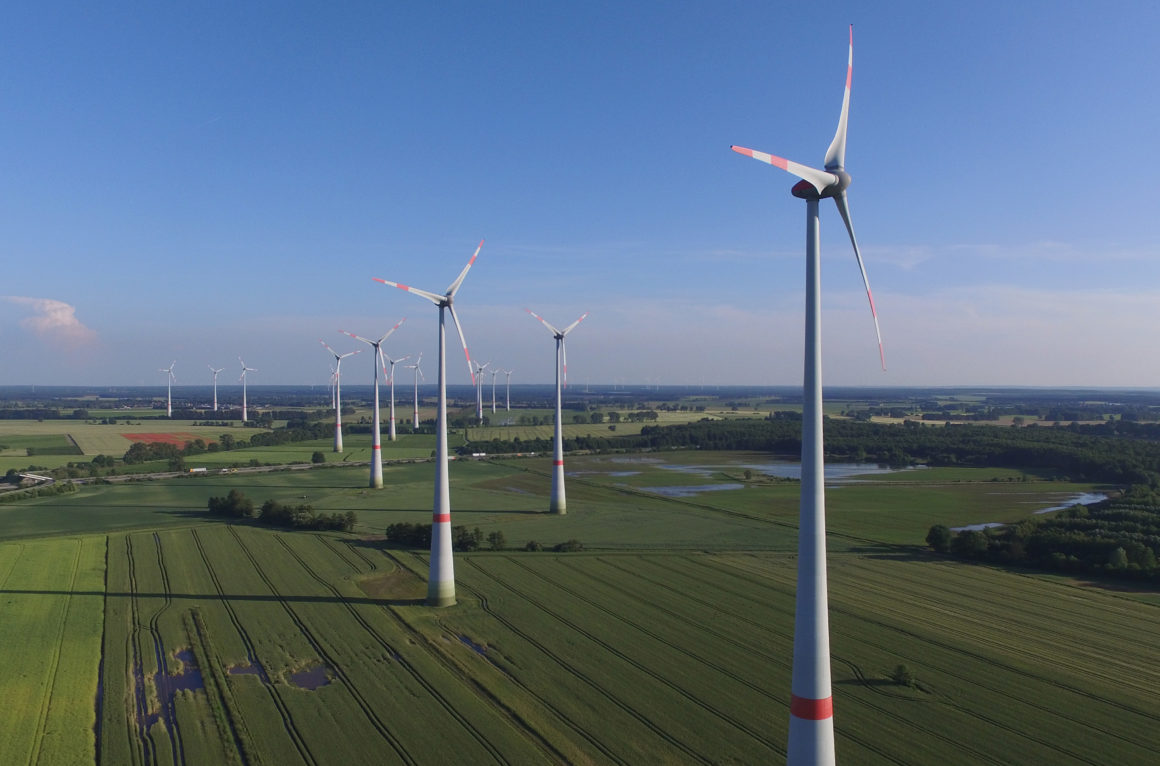In the current issue of the Brooklyn Rail, sociologist Max Ajl takes a critical view of calls for a global “Green New Deal,” which would use the power of government to rapidly convert carbon-based energy sources to low- or no-carbon alternatives. While the goal of drastically reducing carbon emission, writes Ajl, is necessary and urgent, simply switching from carbon to green energy sources would leave the rest of our global energy system largely intact. And this system is tremendously wasteful, controlled by corporations, and grossly undemocratic. Rather than a Green New Deal, Ajl argues for a more fundamental transformation in how we generate and use energy. Here’s an excerpt:
As scientists’ consensus shifts from sober scholarly dialogue into the wider plane of culture, there has been a need to find a framework upon which to hang popular understanding. An increasingly common move is to grasp for a (Global) Green New Deal. This move comes in many forms. I would like to start by dismissing the ones which deserve dismissal, and then dialoguing with those which do not. First to the trash bin is the disquieting embrace of nuclear power so that we can keep using the same if not more energy. If this is a shade of green, it’s one which glows in the dark (there is a reason insurers do not really insure nuclear power). Much more serious is the responsible if distant cousin of the high-energy fission-based deus ex machina: the move to draw all of our needed energy from lithium batteries and solar. One issue is that this tech seems to have an immaculate conception and does not require cutting into Western China, host of the rare earth metals needed for clean energy. This matter ought to be dealt with head-on, since there is a trade-off between carbon-neutral energy, and ecological devastation in Chinese mining sites and Malaysian ore processing centers …
If we are speaking of making a different world, especially one in which hydrocarbon-based forms of production are eliminated, delimiting the discussion to energy production misses large spheres of production which won’t exist in such a world. In particular, technocratic rhetoric misses the mark when it comes to both decarbonizing the food chain and the social implications of such a transition. How does a Green New Deal speak to the entire soy-feed-chicken-beef-consumer complex? This sector—combining land use, livelihoods, labor, production, and consumption—is central to systems-change.
We need to really take stock of what we are talking about: a socio-technical revolution which goes well beyond command-and-control halting of hydrocarbon incineration. In this sense, I worry, too, that much of the new eco-socialist rhetoric is only somewhat less parochial, technocratic, and technicist than the GNDers. Managerial discourse of a clean-tech evolution is important but insufficient. There is a labor question, or specifically an agrarian question of labor. The GND, because it is fundamentally about a rejiggering of global energy use and a low-key jobs program, fails to address far too many questions. Where are we supposed to get food, when entire patterns of urbanization have been built on dollar-cheap food lubricated by dollar-cheap energy? Will we keep using hydrocarbon-based fertilizers to plant corn, which anyway might be devastated by the next blight to which Monsanto’s monocultures are uniquely vulnerable? Where will we get new genetic stock? Is that simply the job of hard-working peasants on the Mexican milpa? Do we bear any substantive burden for the transition? Why does scarcely anyone talk about this?
Image via Politico Europe.
